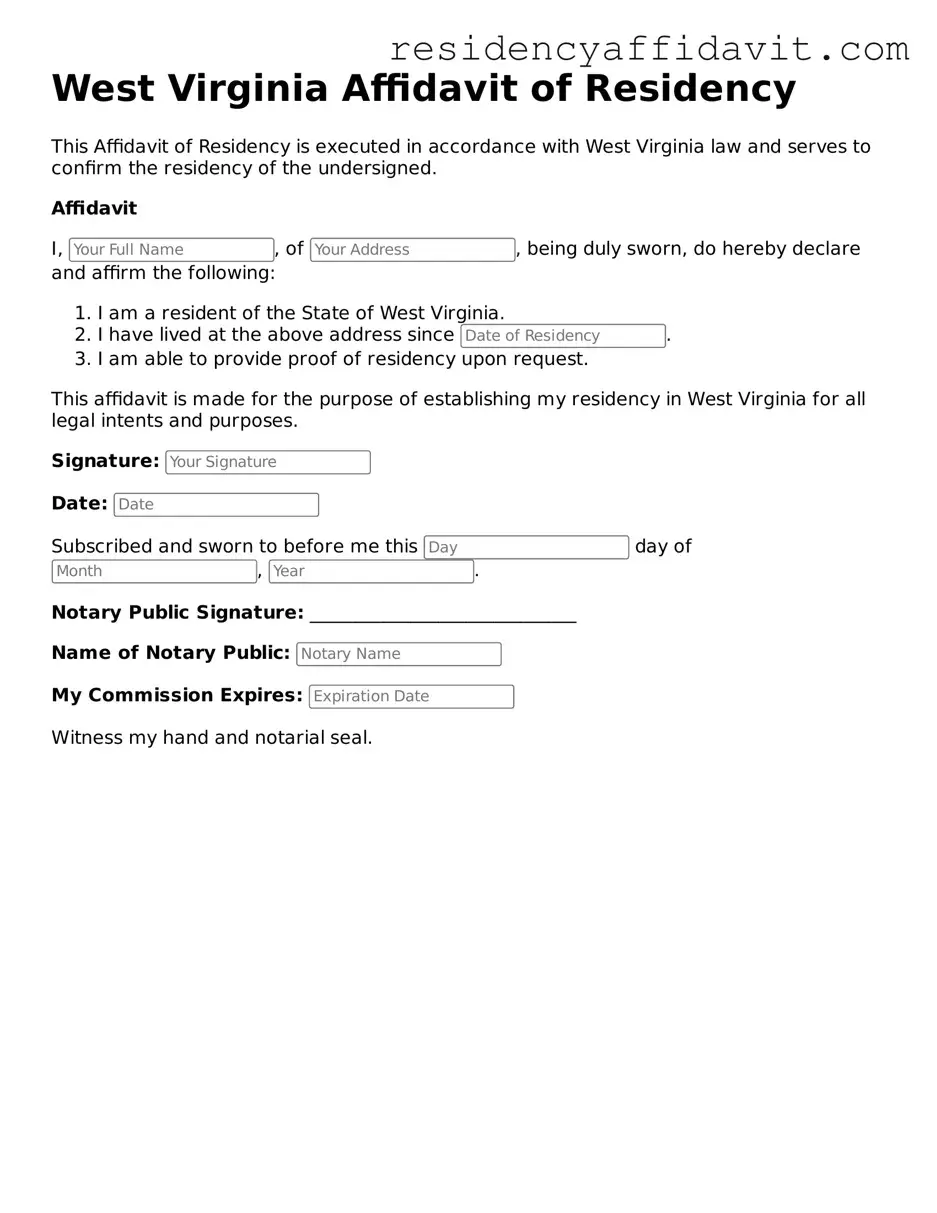Attorney-Approved Affidavit of Residency Document for West Virginia
The West Virginia Affidavit of Residency form is a legal document used to verify a person's residence in the state of West Virginia. This form is often required for various purposes, such as enrolling in school or applying for certain benefits. Understanding how to properly complete and submit this affidavit can help ensure a smooth process for those needing to confirm their residency status.
Get My Affidavit of Residency Online

Attorney-Approved Affidavit of Residency Document for West Virginia
Get My Affidavit of Residency Online
Your form progress is not saved
Edit and save Affidavit of Residency online, ready to download.
Get My Affidavit of Residency Online
or
➤ Affidavit of Residency PDF Form
